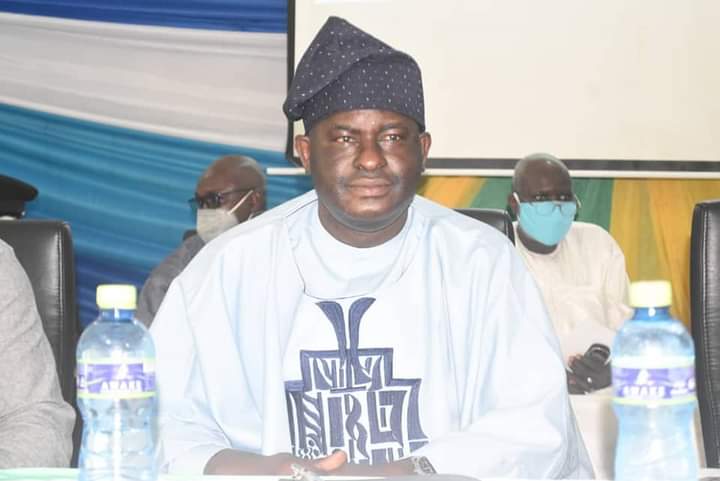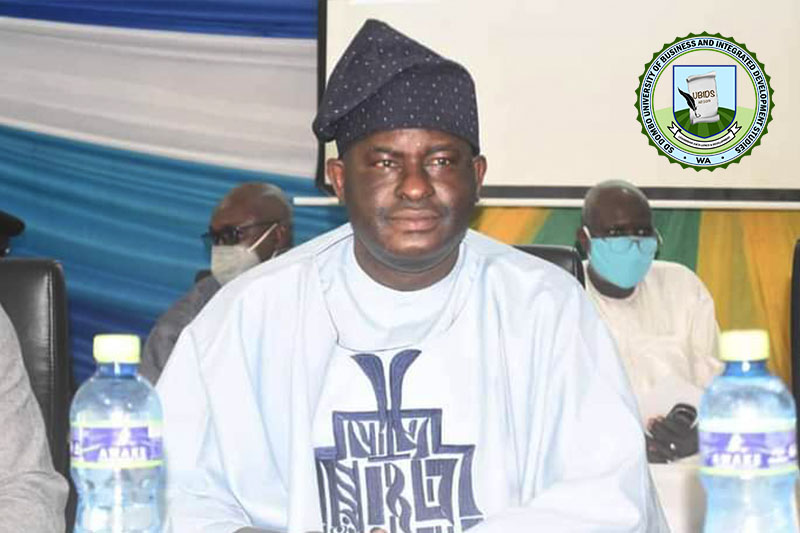Government says it is in the process of addressing all the challenges facing the Simon Diedong Dombo University for Business and Integrated Development Studies (SDD-UBIDS).
The Upper West Regional Minister, Dr. Hafiz Bin Salih, speaking at the closing ceremony of the West African School for the Sustainable Rural Transformation (WAC-SRT) at Wa said government is aware of the challenges facing the young University. He admitted that the challenges range from conditions of service for the staff to several infrastructural inadequacies.
Dr. Bin Salih said the government is quickly implementing the needed strategies to offset the inadequacies. This includes the construction of a hall of residence, a three-storey lecture hall and a library complex among others. The move is to make the institution globally competitive in tertiary education.
“Government is systematically addressing those issues. Let me assure you that all issues of the University that have been brought to my attention have been forwarded to the appropriate quarters for prompt address. I am constantly in touch with the appropriate officials and institutions addressing your issues by way of follow-ups just to ensure that your concerns are addressed.
I appreciate the infrastructural challenges confronting SDD-UBIDS that is why efforts have been enhanced to ensure that the following major projects are completed as soon as possible,” he said.

The West African School for the Sustainable Rural Transformation (WAC-SRT) is a special summer school programme run in two West African countries. The programme is run at the SDD-UBIDS in Wa and the University of Abdou Moumouni in Niamey, Niger.
The aim of the school is to build human resource capacity for Sustainable Rural Transformation in West Africa through relevant post-graduate training and capacity building between the implementing partner universities.
The Upper West Regional Minister, Dr. Bin Salih explained that rural areas are undergoing several changes which have the potential to affect the socio-economic lives of persons living there saying “in many low and middle-income countries, rural areas are undergoing fundamental processes of change that affect not only their economic structure but also their social, cultural, and political fabric”.
He said for the changes to have positives effects on inhabitants of rural areas, there has to be a higher policy coherence in the area of agriculture, food security and nutrition.
“The direction and effects of these rural transformation processes can be shaped and steered to prevent and mitigate negative effects and produce outcomes that are beneficial to rural populations on a national and subnational level. The process of rural transformation must thus be addressed by a policy agenda aimed at making rural transformation ecologically more sustainable and socially inclusive,” he explained.
Dr. Bin Salih continued, “to effectively address the process of rural transformation, a higher level of policy coherence between the desired overall development path and agriculture, food security, and nutrition policies will be required. Special attention must be paid to link sectors like basic services (energy, infrastructure, etc.) with economic opportunities within and outside agriculture.”
He mentioned that Ghana is a country with a greater rural population that depends largely on subsistence agriculture with its attendant problems erratic annual rainfalls, which affect food security.
As a result, the country’s natural resources bequeathed to the current generation by their forebears are often exploited beyond sustainability. He urged those who are privilege to be pursuing post-graduate programmes in development studies to help proffer solutions to the livelihood activities of our rural dwellers for improved lives while protecting the natural environment.
The ceremony was hinged on “food systems and food security for sustainable rural transformation”.



